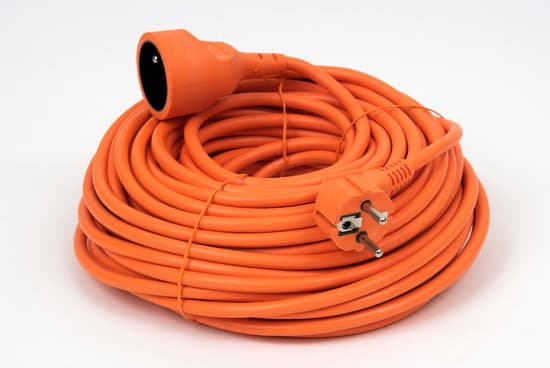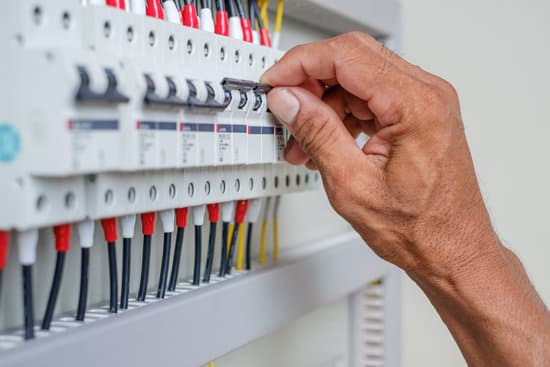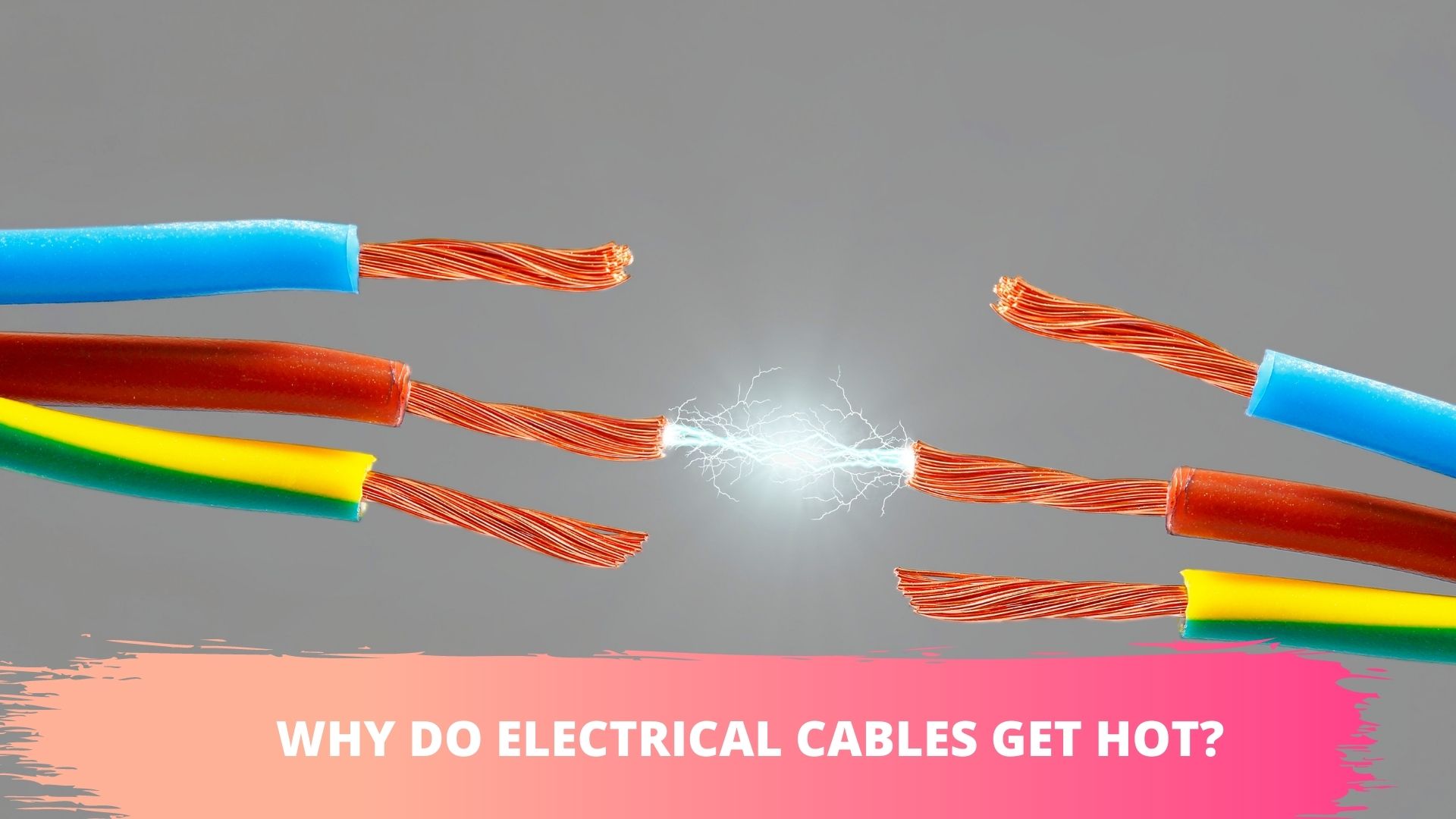Most people understand and appreciate the dangers associated with electricity, which is why they often panic when the electrical wires in their residential or commercial setting become too hot to touch.
What Could Cause A Wire To Get Hot?
Wires can become hot (without overheating) for any number of reasons. They generate heat whenever electricity passes through them because of their resistance.
- If your wires are transmitting electricity to powerful devices like refrigerators, the significant amounts of current they are expected to carry will cause them to grow hotter than they would if they were attached to a less powerful device such as a lamp.
- If you don’t have any powerful appliances on the circuit but your wires are still hot, the environment is probably the cause. The ambient temperature can elevate the temperature of the wires in a particular room.
Though, wires used in places like the attic are normally designed to withstand the spikes in temperature that can sometimes occur. In other words, wires that are hot because of the ambient temperature are not necessarily a cause for concern, not unless your electrician chose to cut corners by purchasing cheap, poorly made wires.
This is why you are encouraged to hire an expert if your wires are hot. Sometimes, the wiring in your home is simply shoddy.
A professional can identify such issues.
You can also trust them to replace defective circuit breakers, switches, and receptacles which can cause wires to overheat.
What Does It Mean When A Wire Gets Hot?
- If the wire is just warm, in many cases, the warmth shows that it is transmitting electricity.
- If the wire is hot but you can comfortably touch it, the wire is most likely transmitting a lot of electricity but not so much that you should worry.
- If the wire is too hot for you to touch comfortably, it might be transmitting more current than it can safely handle.
- It is also possible that a short circuit has occurred but the fuse hasn’t blown, which is why the wire is transmitting so much current so consistently.
How Hot Should Electrical Wires Get?
It is perfectly normal for an electrical cable to become warm, especially if it is transmitting electricity to a power-hungry device like a space heater. But it shouldn’t be so hot that you cannot touch it.
According to the Copper Development Association, the copper conductors in a wire can withstand a maximum of 194 degrees F. Aluminum doesn’t have the same durability.

This makes copper more attractive. However, that isn’t an excuse to permit electrical wires with copper to reach 194 degrees F. In fact, you shouldn’t allow your wires to approach this limit. More importantly, copper conductors have plastic insulation and jacketing that doesn’t have the same durability.
It will melt at lower temperatures. For that reason, you shouldn’t count on the temperature threshold of copper and aluminium conductors to tell you how hot the electrical cable in question should get.
Manufacturers provide data sheets that reveal the temperatures their cables can withstand. You can use them to determine whether or not your electrical cable is too hot.
In fact, some professionals argue that electrical cables should never get hot. They should only become warm. Once a cable is hot, you can conclude that something has gone wrong.
Is It Normal For Electrical Wires To Get Warm?
It is normal because wires are not perfect conductors, a current that passes through an electrical wire encounters resistance. This produces heat. Therefore, if you have electricity passing through an electrical cable, some warmth is to be expected.
This isn’t a good thing because you are losing some of the energy as heat.
The greater the resistance, the greater the heat generated, the more energy lost.
That being said, warm wires are not necessarily a sign of trouble.
Can Wires Overheat?
Wires can overheat. A current passing through a wire can generate so much heat that it causes the plastic components to melt, starting a fire in the process.
Overheating can also cause a wire’s insulation to wear out. Depending on the setting and the situation, electrical arcs can occur, igniting any combustible items in the vicinity such as cloth and wood.
This Old House has pointed to a number of factors that can cause wires to overheat, including the installation of fuses with a higher amperage than the rating of the wires, overloading, and old electrical wiring, to mention but a few. This tells you that overheating is a common issue.
What Causes Electrical Wiring To Overheat?
If your wires have started to overheat, one or more of the following factors is probably at fault:
1). Corrosion
According to RSB Electrical, corrosion can harm wires and conductors, causing their resistance to increase which, in turn, increases the heat they generate. Wires and conductors that are worn out as a result of corrosion are more likely to overheat.
2). Overloading
Like most electrical devices, wires come with a rating. They are designed to safely carry a certain amount of current. If an appliance forces a wire to carry more electricity than it can handle, it will become hot. From what Hunker has seen, wires can withstand a certain amount of intense heat.
But if you continue to use the appliance in question, the heat will eventually melt the plastic coating of the wire. This can lead to a fire.
3). Poor Connections
EC&M blames some cases of overheating on poor connections. Poor connections can focus a high watt density on a small area. If such a situation persists, it can lead to overheating. Poor connections are dangerous because you cannot detect them. They may go unnoticed until a disaster occurs.
4). Environment
Some places are hotter than others. For instance, temperatures can spike in the attic, especially in the summer. Some people do not realize that the ambient temperature can cause the wires in their homes to overheat.
5). Coiling

Hunker believes that coiling can cause overheating. It blames the issue on the fact that coiling increases the resistance in a wire. You see this in extension cables. Their cords are more likely to overheat when you roll them up while they are in use. Coiling also generates a magnetic field.
6). Arc
According to Wikipedia, sparks (or electric arcs) can occur between wires. This can happen in situations where a wired connection has broken.
If two wires are close to one another, electricity may jump from one wire to the other.
In such a scenario, overheating is the least of your worries. The spark is more than capable of igniting the combustible components in the area.
7). Short Circuit
Circuits have a fuse that is designed to blow whenever the electrical supply exceeds the rating of the circuit breaker. However, if the fuse fails to respond as expected, the high voltage can cause the wires to get very hot. If the situation isn’t resolved, the heat will eventually melt the plastic coating of the wire.
You may encounter similar disasters whenever wet arc tracking occurs. This is where a conductive liquid invades the circuit, allowing the current to leak.
8). Few Circuits
Some homes use just one or two circuits to power every appliance in every room on their property. That includes the refrigerators and microwave in the kitchen, the AC units in the bedrooms, and the entertainment system in the living room. Such configurations are more likely to overload the circuit, causing the wires in your home to overheat.
How To Stop Wires Overheating?
The methods you use to stop overheating will depend largely on the cause, for instance:
1). Circuit Breaker

If your wires keep overheating because more current than they can handle keeps flowing through them, a circuit breaker (or fuse) is the perfect solution. It will stop all the current if the amount of electricity passing through the circuit breaker exceeds a particular limit.
2). Use Suitable Enclosure
If poor connections are a concern, you can prevent them from igniting combustible items in the vicinity by covering them with a suitable enclosure. A professional electrician can recommend an effective cover depending on the location. EC&M also believes that a GFCI (or AFCI) can respond to the current leakage that occurs as a result of a poor connection.
3). Rewiring
You can prevent overheating by using wires with a greater gauge. This is because wires that have a larger diameter offer less resistance. They can replace the wiring in your home where necessary
4). Add more Circuits
Add more circuits to your home. If you don’t have enough circuits, you are more likely to cause overheating by overloading the few circuits in your home.
Hire an electrician to install dedicated circuits for power-hungry devices. You should also ask the electrician to add more outlets. This will make extension cords and power strips unnecessary. Extension cords and power strips are a fire, tripping, and electrocution hazard.
5). Maintenance
You need to hire experts to carry out regular inspections. You need them to identify and replace any frayed or damaged wires. They can also upgrade your panels and wires to suit the electrical demands of your home.
Conclusion
Is it normal for a wire to become hot/warm?
Electricity encounters resistance when it passes through a wire. This produces heat. That heat is only dangerous if the wire is too hot for you to comfortably touch. That can happen as a result of overloading, a short circuit, corrosion, arcing, poor connections, the absence of sufficient circuits and outlets, and the ambient temperature, to mention but a few.
You can keep the wire from overheating by installing a functional circuit breaker, enclosing poor connections, adding more circuits and outlets, buying GFCI and AFCI technology, replacing frayed and damaged cords, and using wires with larger diameters

